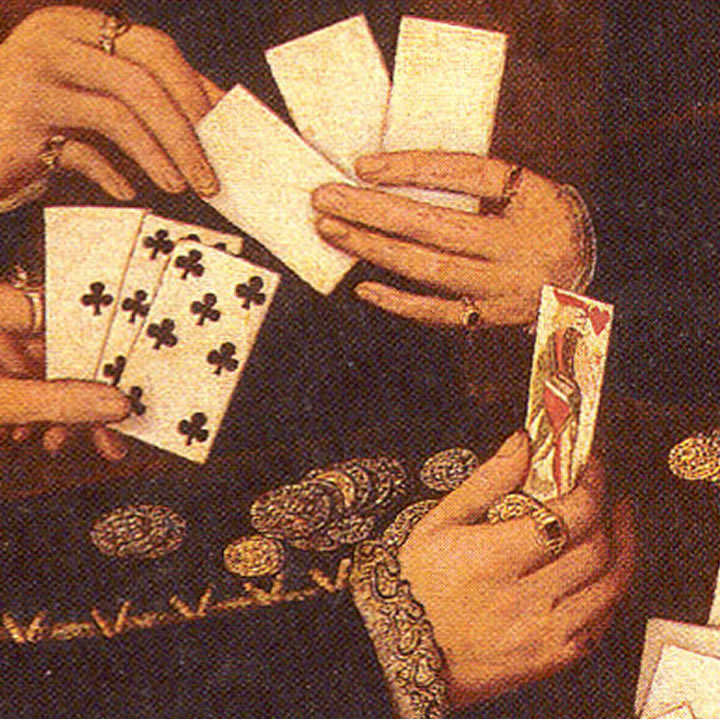There is nothing more obscure in history than the origin of card games. No one knows where and when cards and card games appeared.
The earliest mentions of cards date back to the 12th century and are associated with Asian countries. In China existed card games were played with some kind of oblong stripes, in India cards had a round form.
By the way, in China, they still play also in the historical form of cards, in oblong stripes with hieroglyphs. There is a version that this card game’s invention dates back to 1120, and already 12 years later the whole country was playing this new game, abandoning Mahjong and Go.
According to other sources, cards allegedly existed in China as early as the 8th century, when some kind of games with sticks were invented. These card games later were replaced by the predecessors of modern cards – strips of paper with symbols on them.
Having barely appeared in Europe, card games were immediately banned. Already in the 13th century, was issued a decree according to which the French were forbidden to play cards.
It is reliably known that the cards came to Europe by 1367. More precisely, they appeared in Europe, apparently before that, and by 1367 they were quite widespread.
The Italians at the beginning of the 14th century, literally, in the very years just wiped out the nascent gambling industry.
Later, the Spanish monarch Alfonso XI also completely banned cards.
However, despite all these bans and prohibitions, the nobility in Europe, though somewhat clandestinely, continued to play card games.
Not much is known about the history of card games in Russia. Cards penetrated into the country somewhere in the middle of the last millennium.
Even in the history of the Soviet Union, where absolutely everything that was considered immoral for the appearance of a citizen was prohibited, even there were playing cards. Cards were officially produced by a state-owned factory.
Card games are usually divided into commercial and gambling.
- Commercial games include games that require more or less significant intellectual efforts from the players (“bridge”, “preference”, “whist”, etc.)
- Gambling games are age games where chance plays a decisive role (“blackjack”).
The gambling industry in Asia
Asian countries certainly play an important role in the global gambling market. A lot number of land-based casinos prevail over the number of domestic online operators, which in most cases are prohibited. However, both formats remain popular: on-based casinos and online gambling.
So, today gambling is completely legalized in the following countries: Philippines, Lebanon, Kazakhstan, and Macau. Gambling is partially legalized in China, India, Hong Kong, Thailand, South Korea, Japan, and Vietnam.
Gambling has a long history in Thai culture. And if you’re wondering whether you can join an online Thai casino, then visit 12joker, Thailand’s leading online casino that provides a wide variety of card games, slots, roulette, poker, baccarat, sports betting, and lottery.
Gambling is completely restricted in the UAE, Bangladesh, Indonesia, and Taiwan, where violation of the ban is punishable by fines or imprisonment.
Quite often, the reason for difficulties when foreign operators enter the local gambling market is the features of the local culture and mentality. You can also find the most stocked up and trustworthy MTG Arena Codes online shop – MTGA Codes.
Asian culture associates gambling with numerology, the concept of luck, and various superstitions in comparison with Western culture, where bets play an important role. Therefore, luck or, conversely, failures at cards or bookmakers Asians may associate with aspects of their personalities.

